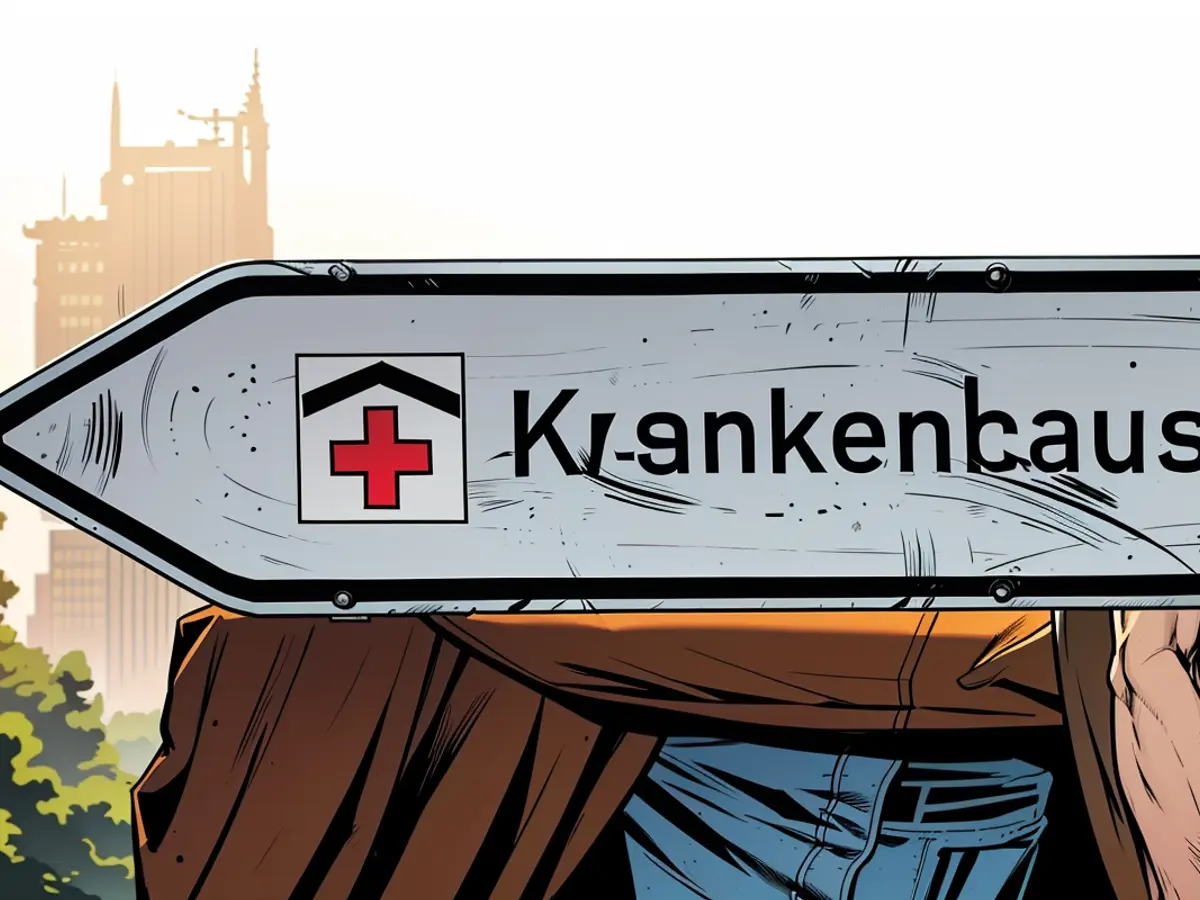- The Leader of the Chamber Advocates for Innovative Approaches in Small Medical Facilities
In areas with declining populations, smaller hospitals are in need of innovative strategies to survive, as suggested by the state medical association's evaluation. Hans-Joerg Bittrich, the chamber president, shared this view with the German Press Agency, stating that it's no longer solely about in-patient care. Instead, there should be collaboration with outpatient services like general practitioners, nursing services, physiotherapists, and pharmacies. He referred to this as a collective responsibility for Thuringia, where the state, municipalities, doctors, and clinic lobbies need to cooperate.
At the moment, the first regional hospital in Thuringia to declare bankruptcy and close down is gaining attention, as reported by the Ministry of Health. The private Sternbach Clinic in Schleiz (Saale-Orla district) filed for insolvency in late June due to financial losses and lack of a suitable financial partner for operation continuation. With 190 affected employees, the 100-bed hospital will cease operations at the end of August. This event raises concerns about future healthcare provision in the Bavaria-adjacent region.
Doctor staffing issues are another challenge faced by many Thuringian hospitals, especially in areas with shrinking and aging populations. Guido Dressel, TK's state chief, mentioned the difficulty of finding specialist staff as well as the role of staff shortages in Schleiz's closure decision. Bittrich agreed, reiterating the seriousness of the issue, especially among doctors.
According to Bittrich and Dressel, a timely assessment of hospital and outpatient care structures in each Thuringian district is long overdue. Dressel argued that hospital planning alone does not represent reality, and there is a need for a solution for underutilized hospital locations, such as a polyclinic with specialist services and a small ward.
In Bittrich's opinion, with an aging population, regional hospitals should prioritize basic care in internal medicine and surgery, treating diabetics, cardiovascular patients, and managing accident or fall injuries. They should also be connected to emergency services to transport critically ill patients to specialized hospitals. Additionally, a physiotherapy department, a pharmacy, and a social services department would be beneficial, as well as ensuring adequate general practitioner services.
Currently, hospital planning and doctor's practice distribution in Germany run concurrently. Local associations of statutory health insurance physicians and health insurance companies manage outpatient care planning, while the state takes care of hospital planning and assigning specific services to hospitals. However, as the federal hospital reform is still pending, it is unclear what specific services individual hospitals will be permitted to offer in the future.
The decline in population in certain Thuringian districts is exacerbating the challenges faced by local hospitals, leading to concerns about their survival. Due to this decline, the Sternbach Clinic in Schleiz recently filed for bankruptcy and is set to close, affecting 190 employees.
The decline in population is also making it difficult for Thuringian hospitals to find specialist staff, as highlighted by TK's state chief Guido Dressel and chamber president Hans-Joerg Bittrich. This staffing issue played a role in the closure decision of the Sternbach Clinic.








